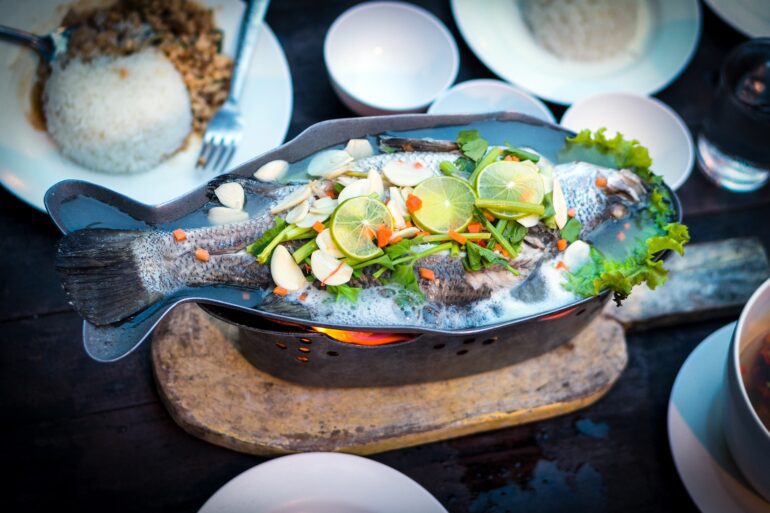TL;DR:
- AI-powered nutrition apps promise improved accuracy and convenience in calorie tracking and dietary management.
- HealthifyMe, an India-based company, introduces a “Snap” feature to track calories based on food photos, complemented by a conversational AI health assistant.
- SnapCalorie A.I. Nutritionist and ChatGPT also offer AI-driven nutrition guidance.
- Samsung’s Bespoke 4-Door Flex Refrigerator incorporates AI to suggest recipes based on available ingredients and dietary preferences.
- Dietitian-nutritionist Alexandra Corwin sees potential benefits in AI for accurate food monitoring but emphasizes the irreplaceable role of human expertise.
- Individuals with specific medical conditions may require personalized advice beyond AI’s capabilities.
- Human nutrition experts excel in interpreting, motivating, and inspiring clients, making them a valuable component in the nutrition landscape.
Main AI News:
In the ever-evolving landscape of health and technology, AI-powered apps claiming to be pocket nutrition assistants have emerged as potential game-changers. Calorie counting, a critical aspect of maintaining a healthy lifestyle, is now poised for greater accuracy and convenience, thanks to the advancements in artificial intelligence. These apps promise to provide insights, coaching, and tracking, offering a personalized approach to nutrition.
HealthifyMe, an India-based nutrition company, stands out with its “Snap” feature, claiming to accurately track calories and macronutrients based on photos of your food. This innovative app not only employs human experts but also introduces Ria, a conversational AI health assistant that assists users in making informed choices regarding their meals and workout routines.
A quick search on app stores reveals options like SnapCalorie A.I. Nutritionist, positioning itself as a “smart AI nutritionist” offering coaching and feedback from its AI model. Even ChatGPT plays its part by providing tailored recipes and answering health-related queries. The integration of AI extends further with Samsung’s Bespoke 4-Door Flex Refrigerator, equipped with AI Family Hub+1 and a camera capable of recognizing various fresh food items. It maintains an inventory of available ingredients and suggests recipes tailored to individual dietary needs and preferences.
Alexandra Corwin, a dietitian-nutritionist at Core Nutrition in Westchester, New York, acknowledges the potential benefits of AI in assisting individuals in monitoring their food intake accurately. She believes that if AI can deliver on its promise of precision, it could significantly aid healthcare practitioners in understanding portion sizes and food composition, thereby benefiting patients seeking dietary guidance.
Despite the allure of AI-driven nutrition apps, Corwin emphasizes the value of human expertise in the field. She recognizes that certain individuals, especially those with specific medical conditions, require personalized advice beyond calorie tracking. Conditions such as diabetes, metabolic syndrome, celiac disease, and irritable bowel syndrome demand tailored dietary recommendations and, in some cases, medication management, necessitating the expertise of healthcare professionals.
While AI may excel at delivering information, Corwin stresses that it falls short when it comes to interpreting and motivating individuals effectively. Dietitian-nutritionists possess the ability to educate and inspire clients, helping them make lasting, practical lifestyle changes. Addressing emotional eating, providing motivation, and crafting strategies for behavior change are areas where human expertise outshines AI.
In the ongoing debate about the role of AI in nutrition assistance, it’s clear that while technology can offer valuable support, it cannot fully replace the human touch. The art of nutritional guidance involves not just providing information but also understanding and motivating individuals on their journey to better health—a task where human nutrition experts continue to excel.
Conclusion:
The emergence of AI-powered nutrition apps offers convenience and precision in dietary management. However, the indispensable role of human expertise, particularly for individuals with medical conditions, remains evident. The market should recognize that while AI can assist, it cannot fully replace the value of human nutrition professionals in providing personalized guidance and motivation to achieve lasting health goals.

